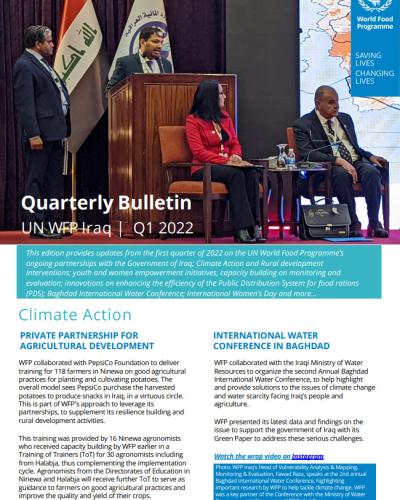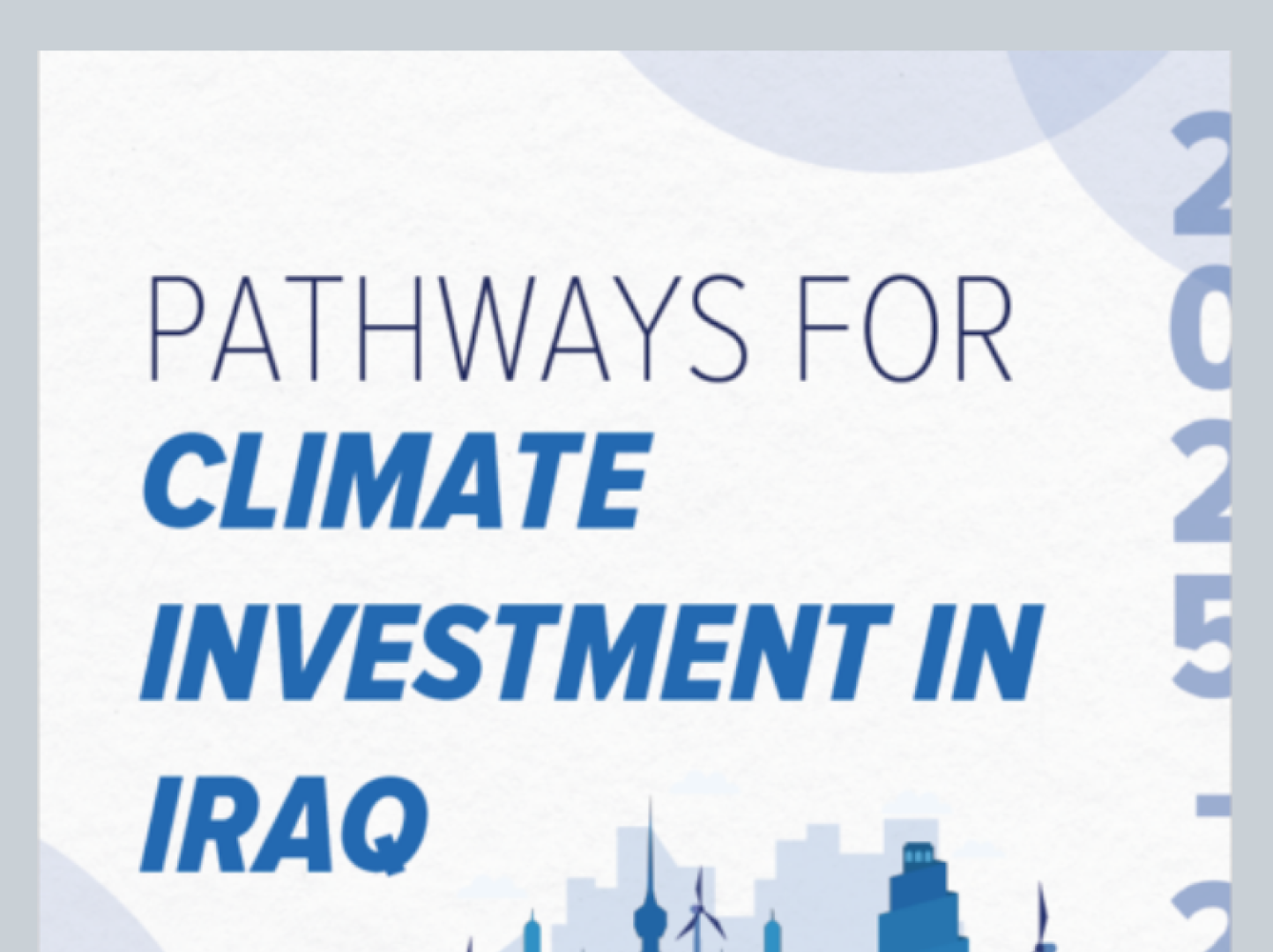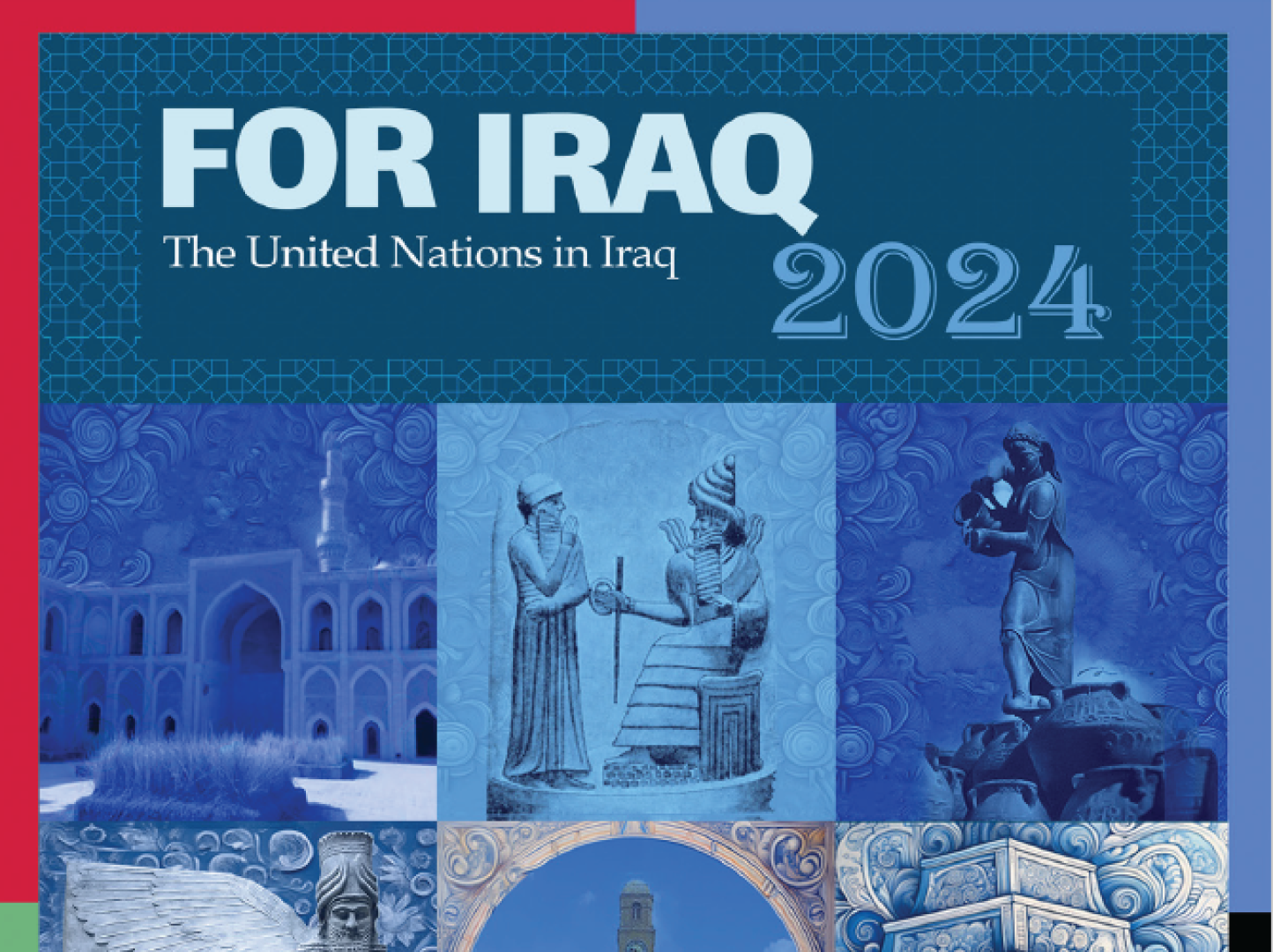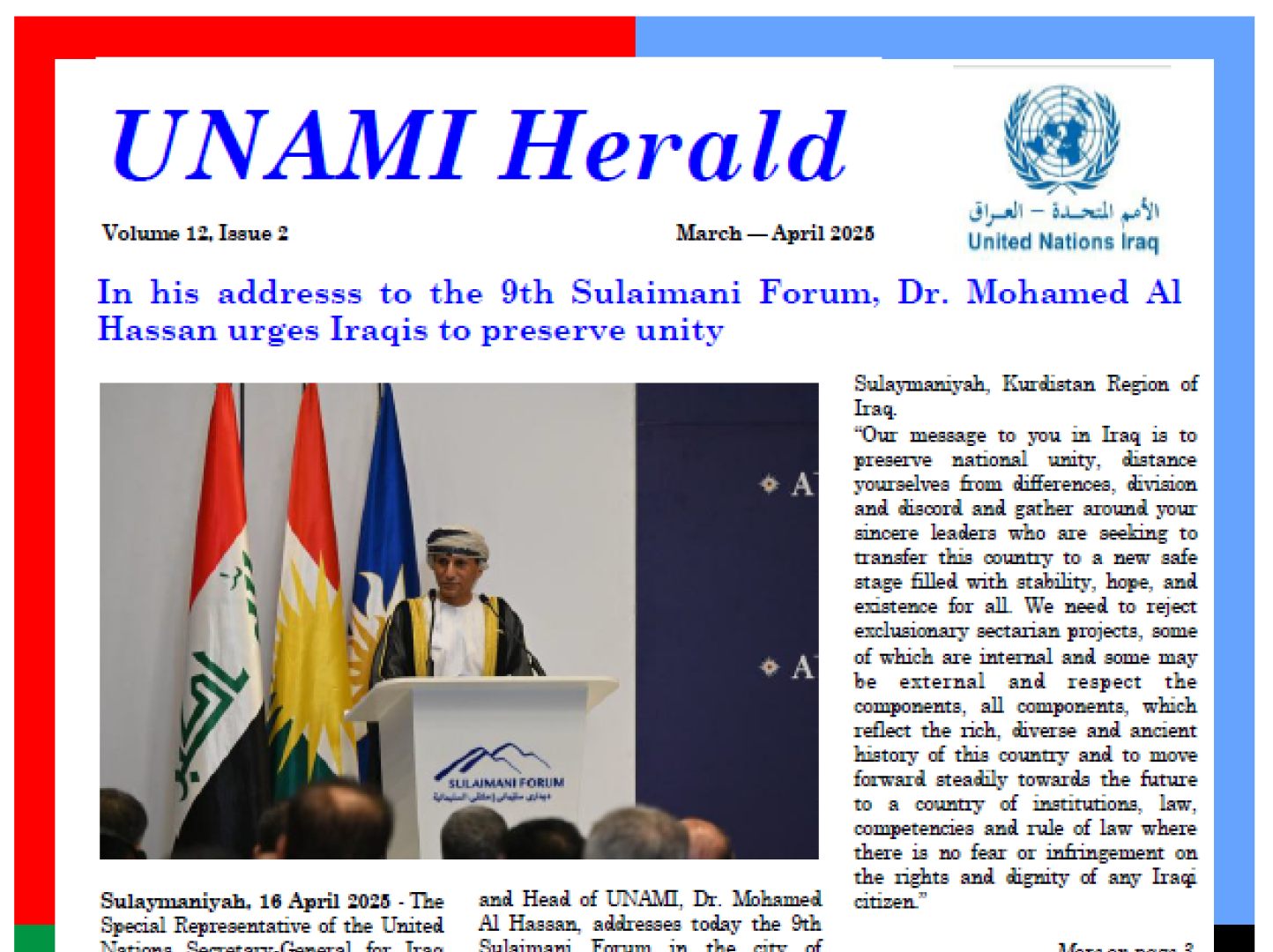Quarterly Bulletin | UN WFP Iraq

This edition provides updates from the first quarter of 2022 on the UN World Food Programme’s ongoing partnerships with the Government of Iraq; Climate Action and Rural development interventions; youth and women empowerment initiatives, capacity building on monitoring and evaluation; innovations on enhancing the efficiency of the Public Distribution System for food rations (PDS); Baghdad International Water Conference; International Women’s Day and more..
PRIVATE PARTNERSHIP FOR AGRICULTURAL DEVELOPMENT
WFP collaborated with PepsiCo Foundation to deliver training for 118 farmers in Ninewa on good agricultural practices for planting and cultivating potatoes. The overall model sees PepsiCo purchase the harvested potatoes to produce snacks in Iraq, in a virtuous circle.
This is part of WFP's approach to leverage its partnerships, to supplement its resilience building and rural development activities.
This training was provided by 16 Ninewa agronomists who received capacity building by WFP earlier in a Training of Trainers (ToT) for 30 agronomists including from Halabja, thus complementing the implementation cycle. Agronomists from the Directorates of Education in Ninewa and Halabja will receive further ToT to serve as guidance to farmers on good agricultural practices and improve the quality and yield of their crops.
INTERNATIONAL WATER CONFERENCE IN BAGHDAD
WFP collaborated with the Iraqi Ministry of Water Resources to organize the second Annual Baghdad International Water Conference, to help highlight and provide solutions to the issues of climate change and water scarcity facing Iraq’s people and agriculture.
WFP presented its latest data and findings on the issue to support the government of Iraq with its Green Paper to address these serious challenges.
MADE IN IRAQ
As part of resilience-building rural development work, WFP and partner Samaritan’s Purse held a local ‘pop-up Food Festival – Made in Iraq’, in Hamdaniya, Ninewa. The festival featured home-cooked, or small-batch produced, food by women’s cooperatives, such as tahini, cheese, yoghurt, pastries and more. The women-led cooperatives were given small grants and key assets such as ovens, and trained over consecutive years through WFP and partners’ resilience projects. The cooperatives enable the women to support their households, especially the women heads of households who have been under stress due to the conflict in the area. The groups use local raw materials and sell in local markets, thus contributing to the local economy and diversifying their livelihoods.
The event was attended by the Mayor of Hamdaniya Professor Issam Behnam Daaboul, officials, traders and members of the community, and the Mosul Women hub. Discussions are ongoing to expand the programme to reach more women, also bringing in local government as a key partner. Further support to the women-led cooperatives is needed to enable the women to grow their cooperatives into long-term micro-businesses.




